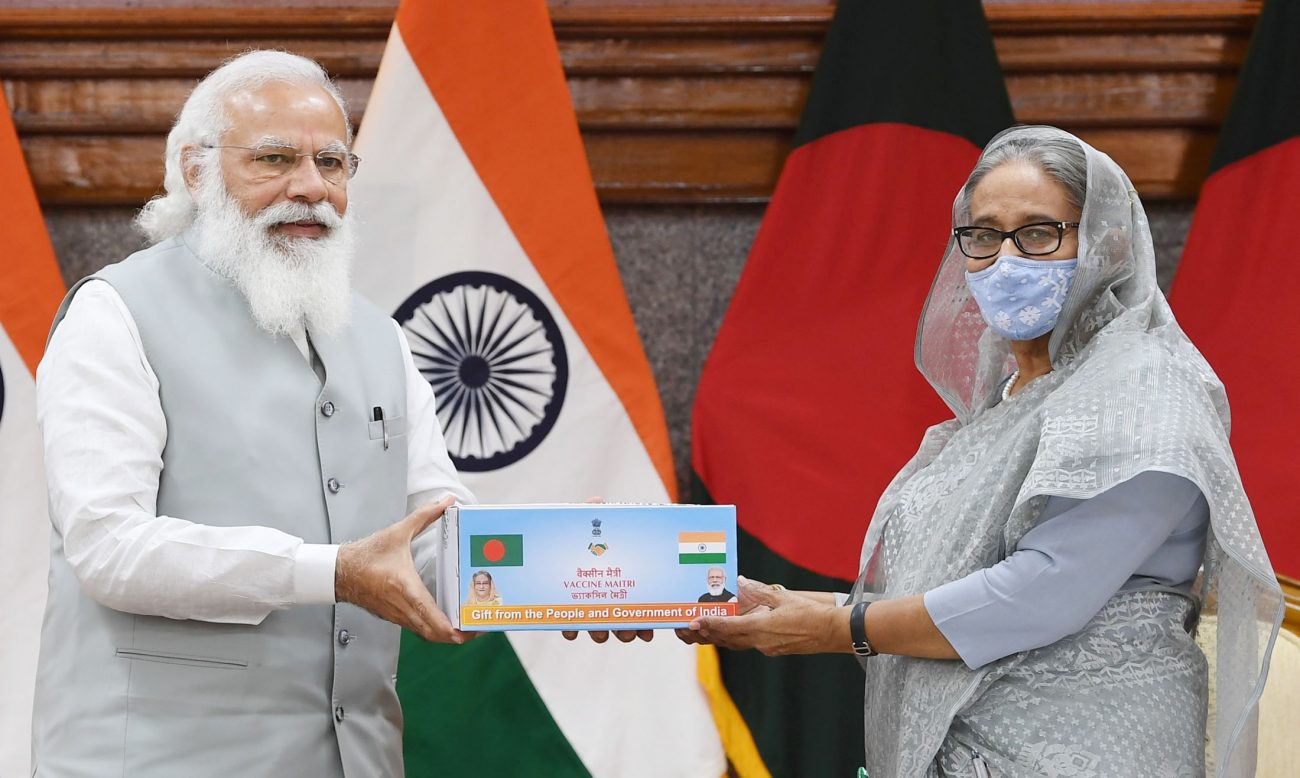India is all set to bag a coveted offer to access Bangladesh’s strategic Chittagong Port, which accounts for 70% of the country’s imports and exports. The development came after India’s External Affairs Minister S Jaishankar and Bangladesh PM Sheikh Hasina met in Dhaka on April 29.
The offer will enhance India’s connectivity to a crucial port that will help in exporting goods from North-Eastern states.
Bangladesh’s Offer To India?
The answer lies in Dhaka’s move to mend its ties with Washington using the good offices of New Delhi. Bangladesh is currently under American sanctions over Dhaka’s Rapid Action Battalion (RAB) — an anti-crime and anti-terrorism unit of the Bangladesh Police.
The Rapid Action Battalion is allegedly behind nailing down the country’s opposition; a detailed report appeared on its activities published by Human Rights Watch. On this account, Bangladesh wants to seek help from New Delhi, but India has ‘declined to comment.’
Besides this, Bangladesh is also concerned about India’s growing business and trade with its neighbor Myanmar. The higher connectivity of India’s North-Eastern states with Bangladesh will benefit the region due to access to the Chittagong Port.

Myanmar vs Bangladesh
Myanmar — which is being ruled by a military junta — has been registering economic growth despite sanctions, which is now threatening Bangladesh’s economy. In its latest move, the Myanmar government has gone ahead to implement that all foreign currencies held in the country’s banks must be exchanged for the kyat within one working day.
This has made the Bangladesh mission in Myanmar claim that the policy shift would mean that nobody will be able to hold US dollars and also that it would affect the export shipments of Bangladesh’s pharmaceutical products to Myanmar. Bangladesh wants the order to be withdrawn, as exports from Bangladesh to Myanmar will suffer.
Bangladesh is skeptical that, in the long run, India might find Myanmar more viable for trade routes to its North-Eastern states once the Kaladan Multimodal Project is completed for India-Myanmar transit.
When completed, the project will connect Kolkata to North East via Myanmar, as it would help ease out the cargo traffic to reach Myanmar and India. This will help India shed its dependence on Siliguri Corridor or Chicken-Neck-Corridor, which faces a Chinese threat.
The more India relies on Myanmar for its access to North-East, Myanmar will also grow in economic benefits from India. Hence, Bangladesh does not want the advantage to go, as Myanmar is quite far-off compared to Chittagong.
But reports suggest that Ashok Leyland, Mahindra, and Bajaj Auto have stepped up their joint ventures and begun identifying homegrown distributor groups to assemble a significant portion of their products in Bangladesh.
Therefore, in a bid to tap into future automobile industries, Bangladesh wants better connectivity with India and also tends to work out the bureaucratic hassles in the way.
World Bank official Cecile Frumanhas said that it takes 138 hours and 55 signatures to move one truck from India to Bangladesh. There are just two freight trains between India and Bangladesh.
India is bound to help Bangladesh by easing sanctions against the country; maybe since Bangladesh does not have any large stakes with Russia, there is a possibility that Dhaka may come out strongly in favor of Ukraine, and then India will have a chance to pitch for Bangladesh.
Let’s wait and see the fine print when Sheikh Hasina comes to India to ink the deal.
(The writer is a former UP State Information Commissioner and writes on international issues.) VIEWS PERSONEL